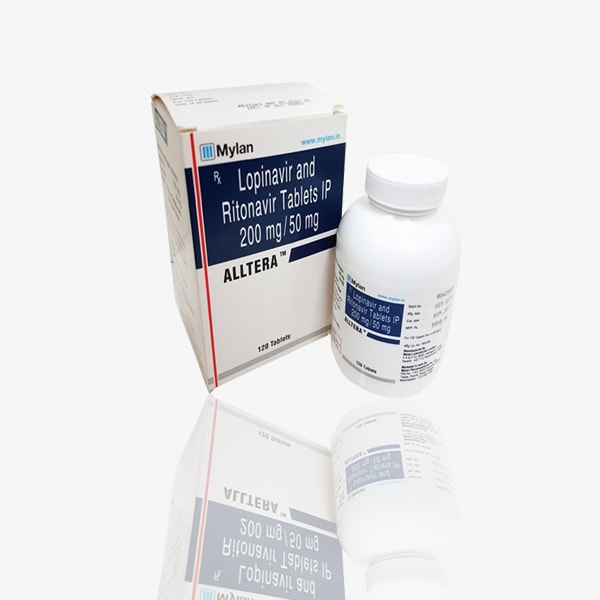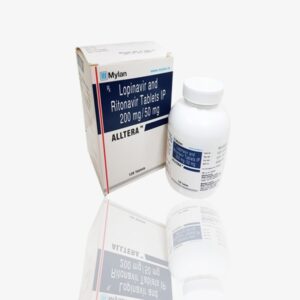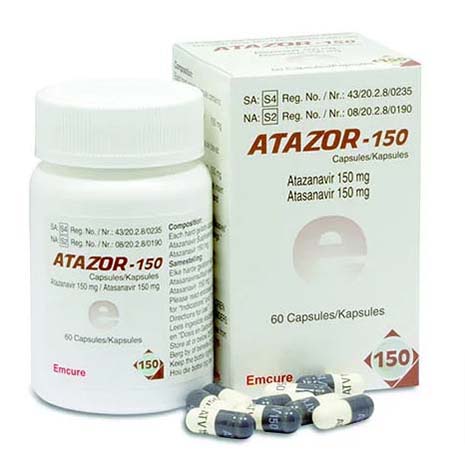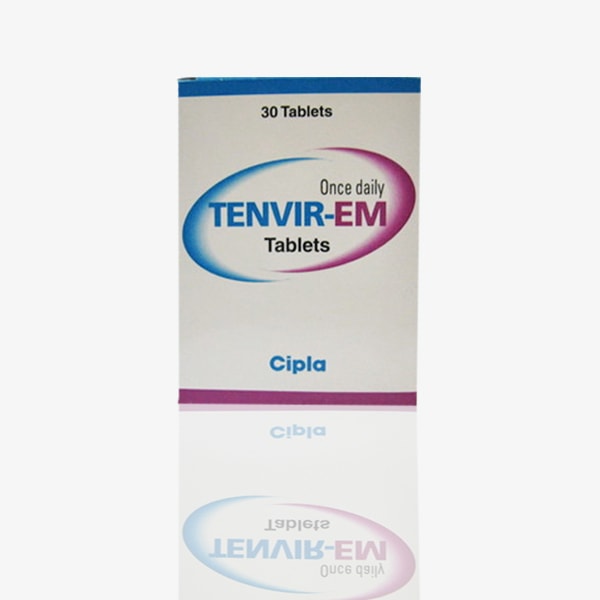

Buy Alltera : Ritonavir & Lopinavir Tablets Online
$89.68
Brand Name : Alltera
Composition : Ritonavir & Lopinavir
Manufactured by : Mylan Pharmaceutical Pvt. Ltd.
Strength : Ritonavir 50 mg & Lopinavir 200 mg
Form : Tablets
Packing : Pack of 120 Tablets
Prescription Required *

Buy Alltera : Ritonavir & Lopinavir Tablets Online
$89.68
- Description
- Reviews (0)
Description
Description: Alltera is a medication that combines two active ingredients, ritonavir and lopinavir, in tablet form. It is primarily used in the treatment of HIV infection, particularly in adults and children who have not previously received antiretroviral therapy or who have developed resistance to other HIV medications.
Indications: Alltera is indicated for the treatment of HIV-1 infection in combination with other antiretroviral agents. It is used as part of a comprehensive regimen known as highly active antiretroviral therapy (HAART) to suppress viral replication, reduce HIV-related morbidity and mortality, and improve overall immune function.
Mechanism of Action:
- Lopinavir: Lopinavir is a protease inhibitor that works by blocking the activity of the HIV protease enzyme, which is essential for the replication of the virus. By inhibiting protease, lopinavir prevents the cleavage of viral polyproteins, thereby interfering with the maturation of new virus particles.
- Ritonavir: Ritonavir is also a protease inhibitor, but its primary role in combination with lopinavir is to boost the levels of lopinavir in the body by inhibiting its metabolism. Ritonavir acts as a pharmacokinetic enhancer, increasing the plasma concentrations and prolonging the half-life of lopinavir.
Administration:
- Alltera is administered orally in the form of tablets.
- The tablets are typically taken with food to enhance absorption and reduce gastrointestinal side effects.
- The dosage and administration schedule are determined by the treating healthcare professional based on factors such as the patient’s weight, age, renal function, and other concurrent medications.
Dosage:
- The recommended dosage of Alltera may vary based on individual patient characteristics and treatment history. It is typically taken twice daily, but the specific regimen may be adjusted as needed.
Monitoring:
- Regular monitoring of HIV viral load and CD4 cell count is essential during treatment with Alltera to assess the response to therapy and detect any signs of virological failure or immune system deterioration.
- Patients should also undergo periodic laboratory tests to evaluate liver function, lipid levels, and other potential side effects associated with antiretroviral therapy.
Side Effects: Common side effects of Alltera may include gastrointestinal symptoms such as nausea, vomiting, diarrhea, and abdominal discomfort. Other potential side effects may include fatigue, headache, dizziness, rash, and changes in lipid levels or liver enzymes.
Precautions:
- Alltera should be used with caution in patients with pre-existing liver or kidney conditions, as well as in patients with a history of certain cardiovascular disorders or bleeding disorders.
- It may interact with other medications, and patients should inform their healthcare provider about all the medications they are taking, including over-the-counter drugs and herbal supplements.
Consultation with Healthcare Professional:
- The use of Alltera should be discussed thoroughly with a healthcare professional, typically an infectious disease specialist or HIV specialist.
- Patients should inform their healthcare provider about their medical history, existing health conditions, and any medications they are taking before starting treatment.
Duration of Treatment:
- Alltera is usually taken on a long-term basis as part of a lifelong regimen for the management of HIV infection. Treatment is typically continued indefinitely, and patients should adhere to the prescribed regimen to achieve optimal viral suppression and immune reconstitution.
Alltera (ritonavir & lopinavir tablets) plays a vital role in the treatment of HIV infection, offering potent antiretroviral activity and high barrier to resistance when used in combination with other HIV medications. Its use involves careful monitoring and management of potential side effects to ensure optimal outcomes for patients living with HIV.
Be the first to review “Buy Alltera : Ritonavir & Lopinavir Tablets Online” Cancel reply
Related Products
Buy Atazor : Atazanavir 150 mg Capsules Online
Total Sales: 0
SKU: 942865
Buy Danavir : Darunavir 600 mg Tablets Online
Total Sales: 0
SKU: 588552
Buy Efavir : Efavirenz 600 mg Tablets Online
Total Sales: 0
SKU: 333247
Buy Tenvir EM : Emtricitabine & Tenofovir Tablets Online
Total Sales: 0
SKU: 175716
Buy Trioday : Efavirenz, Lamivudine & Tenofovir Tablet 30'S Online
Total Sales: 0
SKU: 866527







Reviews
There are no reviews yet.